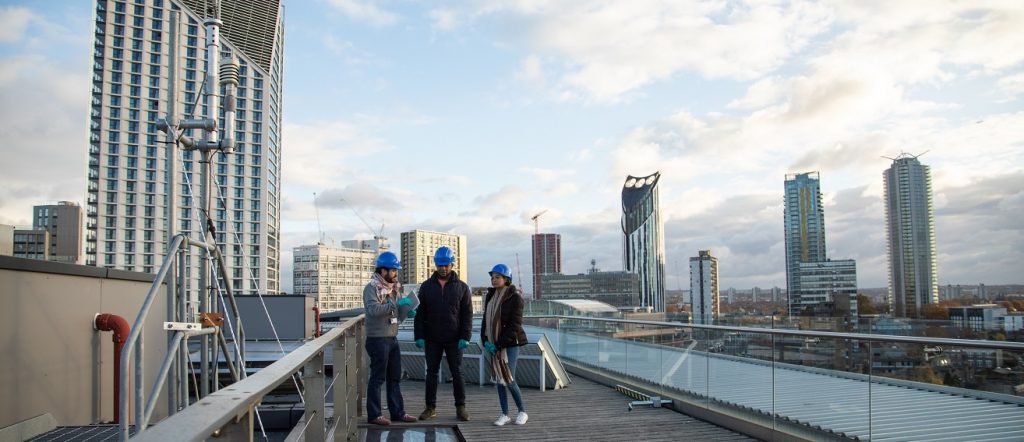MSc Building Services Engineering

Overview
Beautiful architecture. Solid structure. What else do buildings need? Try living in one without any heating, cooling, electrical power, lighting, water or drainage. What would it be like to work in a tower without lifts? How would you manage without telephones, an IT system or an internet connection? All of these systems and many more are designed by building services engineers. They turn buildings from empty shells into spaces fit for people to use.
What could you achieve?
From the very start of a building’s design, building services engineers are involved helping architects and other members of the design team to get the size, shape and configuration of the building right, as well as determining strategies for designing energy efficient buildings, making them sustainable in the long term.
Buildings are responsible for a large chunk of carbon emissions, so this work makes a critical contribution to reducing a building’s impact on climate change.
Of all the disciplines working in the built environment today, the building services engineer has the broadest reach and the deepest impact, affecting virtually every aspect of building design.
This course provides a broad basis of the technological areas of building services and energy engineering, with particular emphasis on the interaction between the built and natural environments, modern industry, and the analysis of developing technologies.
Why study Building Services Engineering at LSBU?
- We’re the number one London modern university for research intensity in Building (Complete University Guide 2019).
- Heritage: we have been running courses for the Building Services Engineering industry since 1947.
- Professional accreditation: accredited by Chartered Institution of Building Services Engineers (CIBSE) and the Energy Institute.
- We have one of the best laboratory–workshop complexes in London. Find out more information about our facilities.
Modules
The course provides a practitioner perspective to analyse building energy requirements in terms of the external environment and internal space, and the effect on energy resources. We consider the principles of associated building engineering systems to understand control, simulation and modelling techniques.
As well as the core engineering skills, appropriate areas of management and research methods are studied to provide a balance foundation for specialist units. The MSc dissertation provides an opportunity to develop further research skills through in-depth and innovative thinking.
- Thermal environment, acoustics and lighting
- Heating and energy in buildings
- Energy resource and use analysis
- Electrical power
- Sustainable refrigeration
- Ventilation and air conditioning
- Energy engineering project
Entry requirements
The course is designed for students with undergraduate degrees in mechanical, electrical or chemical engineering, or other relevant engineering disciplines, and who seek to develop specialised skills in building services engineering to enter this industry.
- A BEng (Hons) degree in an appropriate discipline. Normally upper second class would be considered a minimum, but lower class may be acceptable depending on experience.
- Cognate degrees in appropriate disciplines (e.g. physics, chemistry or mathematics) will be accepted provided the candidate demonstrates some knowledge of building services engineering.
- Other qualifications may be accepted depending on age and experience. This category would normally be reserved for mature candidates who have had several years experience in the building services industry.
- For applicants whose first language is not English, an IELTS score of 6.5 or equivalent is required.

